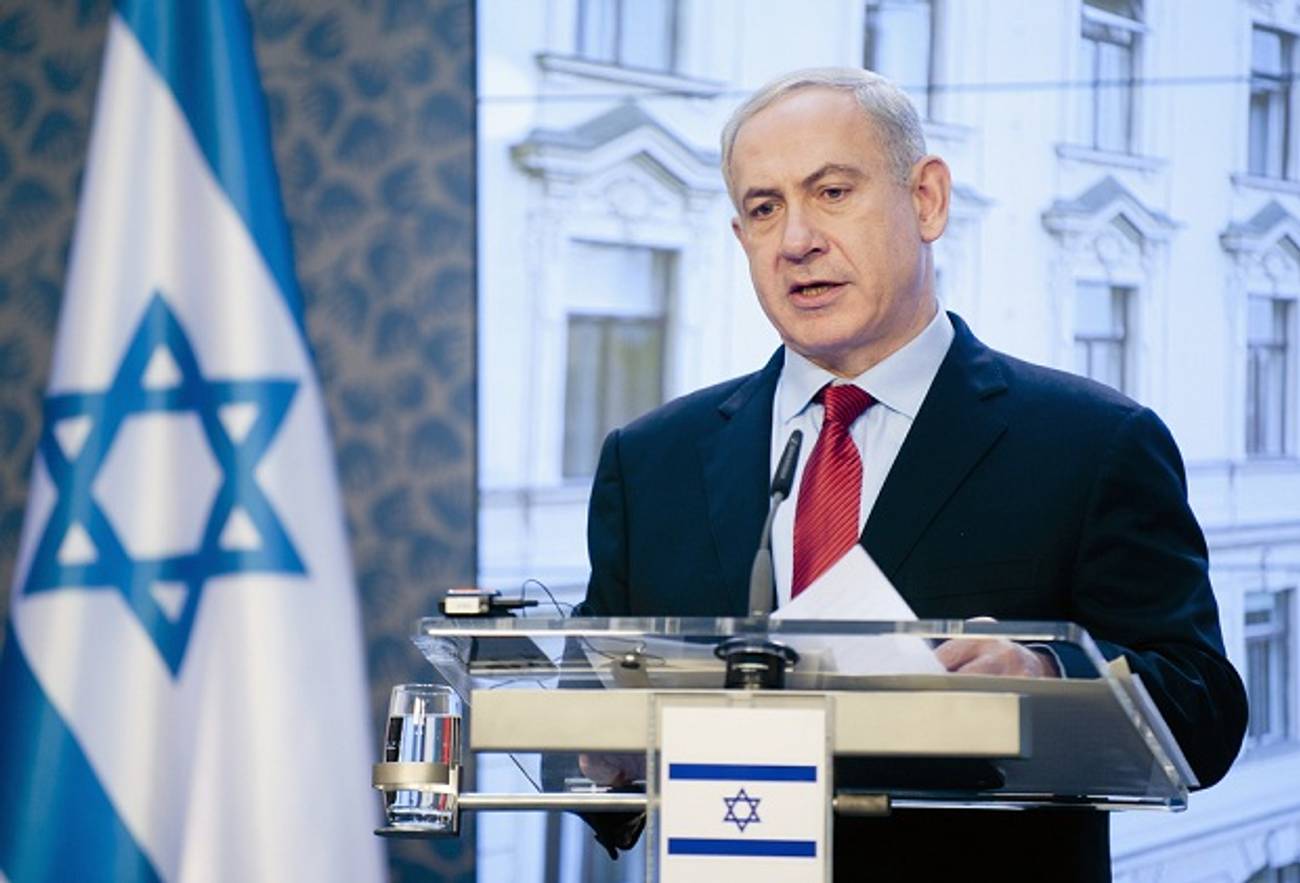Did Netanyahu Invent the Demand that Israel Be Recognized as a Jewish State?
The short answer is “no.” The long answer is also “no.”




Is Israeli Prime Minister Benjamin Netanyahu serious about reaching a peace agreement with the Palestinians? His critics say no, and lately point to his insistence that Israel be recognized as a Jewish state in a future accord. This demand, they argue, is a “poison pill” that no Palestinian leader could accept, and which was introduced by Netanyahu in order to ensure the failure of negotiations. A new report in Haaretz by Amira Hass–in which she speaks with former Palestinian negotiator Nabil Shaath, who says Netanyahu invented the controversial demand out of whole cloth in 2010–would seem to bolster this claim. The only problem is, it doesn’t stand up to historical scrutiny.
In her piece, Hass reports:
Shaath, a former negotiator with the Israelis, said the demand for recognition of Israel’s Jewish character was not included in past talks, official and otherwise, or in any of the signed documents and agreements between the two sides…
It was first brought up in 2010, in Washington.
Hass recounts Shaath’s claim uncritically, leaving readers with the impression that it accords with the historical record. But it does not. In fact, according to the Palestine Papers–a massive trove of leaked documents published by Al Jazeera, which record a decade of Israeli-Palestinian negotiations–the demand was broached by none other than Tzipi Livni…in 2007.
Representing Israel’s liberal Kadima-led coalition in Annapolis prior to Netanyahu’s election in 2009, Livni raised the subject of Israel’s Jewish character with the Palestinian negotiating team. The transcription of the ensuing discussion is choppy, but the gist is unmistakable:
TZIPI LIVNI: I just want to say something. …Our idea is to refer to two states for two peoples. Or two nation states, Palestine and Israel living side by side in peace and security with each state constituting the homeland for its people and the fulfillment of their national aspirations and self determination…
AKRAM HANIYEH: This refers to the Israeli people?
LIVNI: [Visibly angered.] I think that we can use another session – about what it means to be a Jew and that it is more than just a religion. But if you want to take us back to 1947 — it won’t help. Each state constituting the homeland for its people and the fulfillment of their national aspirations and self determination in their own territory. Israel the state of the Jewish people — and I would like to emphasize the meaning of “its people” is the Jewish people — with Jerusalem the united and undivided capital of Israel and of the Jewish people for 3007 years… [The Palestinian team protests.] You asked for it. [AHMED QUEREI: We said East Jerusalem!] …and Palestine for the Palestinian people. We did not want to say that there is a “Palestinian people” but we’ve accepted your right to self determination.
AHMED QUEREI: Why is it different?
LIVNI: …I didn’t ask for something that relates to my own self. I didn’t ask for recognizing something that is the internal decision of Israel. Israel can do so, it is a sovereign state. [We want you to recognize it.] The whole idea of the conflict is … the entire point is the establishment of the Jewish state.
…There is something that is shorter. I can read something with different wording:
That the ultimate goal is constituting the homeland for the Jewish people and the Palestinian people respectively, and the fulfillment of their national aspirations and self determination in their own territory.
Now, Shaath was not in the room for this 2007 negotiating session, so it’s possible he never heard about this incident. (Or the fact that “references must be made to Israel’s right to exist as a Jewish state” was one of Israel’s official reservations appended to the 2003 Bush Road Map.) But the Palestine Papers are in the public domain, and available to any reporters seeking to fact-check whether Netanyahu was the first to ask that the Palestinians recognize Israel as the nation-state of the Jewish people, just as Israel will recognize Palestine as the nation-state of the Palestinian people.
But the chain reaches even further back than 2007. In fact, as Israel’s chief archivist Yaacov Lozowick has documented, the idea that Israel be recognized as a Jewish state was actually conceived years earlier by the Israeli left:
In July 2001, 9 months into the Jerusalem Intifada and four months into the government of Ariel Sharon, a group of some two dozen intellectuals from both sides convened to build a bridge over the ruins of peace…
Their idea was simple: to agree on a joint declaration calling on the warring factions to desist from their insanity and return to negotiations. The peaceniks would join hands, and with their moral authority embarrass the politicians back to sanity. The Palestinians were willing to join in stating that there should be two independent states alongside one another, but the Israelis, alerted by the fiascos of Camp David and Taba to a nuance they had previously overlooked, demanded that the statement clearly say that Israel would be a Jewish State and Palestine an Arab one. The Palestinians refused. Jews, they said, are a religion, not a nationality, and neither need nor deserve their own state. They were welcome to live in Israel, but the Palestinian refugees would come back, and perhaps she would cease to be a Jewish State.
This historical accounting does not settle whether the demand that Israel be recognized as a Jewish state is a wise or necessary one for achieving a lasting peace. That remains a subject worthy of debate. Whether Netanyahu fabricated that demand to sabotage the peace talks, on the other hand, clearly is not.
Yair Rosenberg is a senior writer at Tablet. Subscribe to his newsletter, listen to his music, and follow him on Twitter and Facebook.